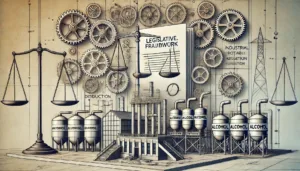Case Citation
- Court Name: Supreme Court of India
- Case Title: Jaggo & Others vs. Union of India & Others
- Case No.: Civil Appeal No. (Arising out of SLP (C) No. 5580 of 2024 and SLP (C) No. 11086 of 2024)
- Date of Judgment: December 20, 2024
- Judge(s) Name: Hon’ble Mr. Justice Vikram Nath and Hon’ble Mr. Justice Prasanna B. Varale
Facts of the Case
The appellants, initially engaged on part-time, ad-hoc terms by the Central Water Commission (CWC), served as Safaiwalis (cleaning staff) and a Khallasi (maintenance staff) from 1993, 1998, 1999, and 2004, respectively. Over decades, they performed critical housekeeping and maintenance tasks integral to the functioning of CWC offices. Despite their prolonged service, they were denied regularization and terminated abruptly in 2018. Their original application for regularization before the Central Administrative Tribunal was dismissed, and the Delhi High Court upheld the dismissal, leading to this appeal in the Supreme Court.
Contentions of the Appellants
The appellants argued that their work was perennial, indispensable, and indistinguishable from regular employees’ roles. They highlighted their uninterrupted service, satisfactory performance, and lack of evidence of illegal or clandestine entry. They claimed entitlement to regularization under the principles laid down in the Uma Devi judgment, emphasizing fairness and equity. Furthermore, they contested the relevance of educational qualifications retrospectively applied and pointed out instances of discriminatory regularization within the respondent department.
Contentions of the Respondents
The respondents contended that the appellants were engaged on part-time, contractual terms, without sanctioned posts, and lacked the minimum educational qualifications for regularization. They justified outsourcing the work as a policy decision and relied on Uma Devi to argue that no right to regularization arises from long service alone. They maintained that the appellants’ claims lacked legal merit and asserted that their dismissal was lawful.
Issues on This Judgment
- Whether the appellants’ long-standing engagement warranted regularization despite being on ad-hoc terms.
- Whether the respondents’ outsourcing policy negated the appellants’ claim for regularization.
- Whether the educational qualifications were a valid ground to deny regularization retrospectively.
- Whether the abrupt termination of the appellants’ services violated principles of natural justice.
Observations/Findings of the Supreme Court
The Court emphasized that the appellants’ uninterrupted service, spanning decades, and their essential roles underscored the need for their regularization. It rejected the respondents’ reliance on procedural technicalities and the educational qualifications argument, deeming it unreasonable given the appellants’ proven capabilities. The Court highlighted the discriminatory treatment against the appellants compared to other employees regularized under similar circumstances. The outsourcing policy, initiated post-termination, was seen as a tactic to avoid regularization obligations, and the termination itself was deemed arbitrary and in violation of natural justice.
Principle(s) Laid Down by the Court in This Case
- Long-standing, continuous, and unblemished service performing essential tasks transforms an ad-hoc appointment into one demanding fair regularization.
- Retrospective application of educational qualifications is unjust when not central to the nature of the work.
- Discriminatory practices in employment regularization violate the principles of equality under Articles 14 and 16 of the Constitution.
- Employers cannot evade regularization obligations by outsourcing roles post-termination.
- The principles laid down in Uma Devi must be interpreted to balance constitutional adherence with equity and fairness.
Final Order
The Supreme Court set aside the High Court and Tribunal orders. It quashed the appellants’ termination and directed their reinstatement with immediate regularization of their services. While the appellants were not granted back wages, their service continuity was recognized for post-retirement benefits.
Importance of This Judgment to Society
This judgment reinforces labor rights, emphasizing fairness and equity in employment practices. It discourages the misuse of temporary contracts in government institutions to exploit workers and evade long-term obligations. By ensuring the regularization of long-serving employees, it upholds the dignity of labor and sets a precedent against arbitrary terminations. The judgment also serves as a reminder for employers to align their practices with principles of justice and natural fairness, bolstering public trust in the judiciary.








